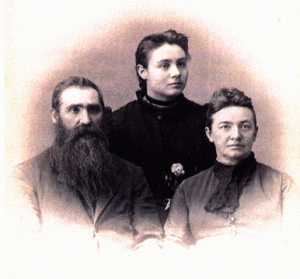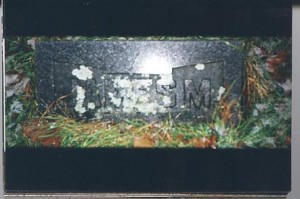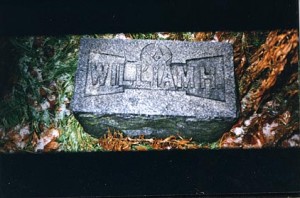Today is the anniversary of the birth of our first President, George Washington. We, as a nation, have chosen not to celebrate this day special and apart from any other President, and I would be the last to disparage the collective judgment of the American people on a subject such as this. Personally think the day to be important, and thus I would like to say a few words about a man who I consider to be a personal, albeit long dead, friend.
The fact is, I like Mr. Washington. He turned out to be the perfect choice for our first General, and our First President, not to mention the title “father of our country.” He represents, to me, everything for which this country was founded, and everything for which we, as a people, should strive. He was, in today’s parlance, a ‘righteous dude,’ a person who lived an amazing life. The sad part, to me, about the lack of interest the people of the United States show in their history is that they miss the joy of reading of the lives of such extraordinary people. We find many doubting that anyone was, in fact, extraordinary, and even try to disparage them, and bring them down to earth.
There are, however, people in history for whom the more one studies, the better that person becomes, people without peer, without fault. Winston Churchill was such a person, to me. Abraham Lincoln, another…and there are many more people can find whose lives are worth emulating. It is not that they were, in fact, perfect; I am sure Churchill, at some point in his life, picked his nose, or had impure thoughts about a woman or other…Abraham Lincoln was prone to deep depressions, and, for one year of his life, after the death of his first true love, Anne Rutledge, was most likely, from any definition, insane.
These people lived exemplary lives, nevertheless. They did not have affairs. They did not seek gain at the expense of others. They devoted their lives, heart and honor to the public good. Few of us can live up to those standards, which is why they should be held up as examples to be followed. People need those examples, to show that it is possible.
Thus we have George Washington. To me, Mr. Washington was a cross between John Wayne and David Niven; a man born to be an aristocrat, who did not shirk from living a harsh life in the wilderness, when called upon to do so, who never shrank from a fight, if there was any chance of winning, who often lost, but never gave up, and carried every enterprise he started to the end, one way or another. He is a man who I would have been proud to be, a man to whom I would have been proud to have been considered a friend, a man whose good opinion I would have treasured and honored above all.
Mr. Washington was born in 1731. At the age of 16, he was sent, as a surveyor, into the wilderness West of the Blue RidgeMountain, an uncharted land still inhabited by hostile Indians. A year later, at the age of 17, he was appointed chief surveyor of the newly formed Culpepper county. As district adjutant, which made (December 1752) him Major Washington at the age of 20, he was charged with training the militia in the quarter assigned him. Such a rise in responsibility was evidence of the regard in which he was held by his peers.
In 1753, the French and Indian War began, and Mr. Washington fired among the first shots in this war. He was sent to tell the French to leave the Ohio Valley. When they refused, he attacked a small force of Frenchmen, killing an envoy sent to demand that he leave the area…in fact, it can be said that Washington began the course of events resulting in the start of the French Revolution with this act; the death of this envoy so outraged the French that they began what later came to be known as the “French and Indian Wars.” The French lost these wars and the effort bankrupted the French government….which caused them to raise taxes which resulted, eventually, in their revolution.
In 1755, he was with a British expedition, under General Braddock, which was defeated at the Monogahela; Mr. Washington distinguished himself, having two horses shot out from under him, and his clothes holed by many bullets. His reward was, at the age of 24, to be appointed commander in chief of Virginia forces, and spent the next three years fighting a savage warfare, averaging two engagements a month with inadequate forces and few supplies.
He was, thus, the obvious choice for commander in chief of the American armies when the American Revolution came about. He had more experience commanding troops in combat than anyone else, and was respected by all who knew him.
Mr. Washington’s greatness as a military commander was not because of his skills as a military commander. He was, in fact, trounced by the British in almost every engagement where he faced organized British troops. His greatness stems from the fact that he did not quit, through some very bad times, and that he kept the army together when many counseled defeat and surrender. Though expressing discouragement, often, in his private letters, he was, in public, the soul of inspiration, a man who soldiers would follow through bitter weather and defeat. Of course, in the end, he led his army to victory against the British…and there was no one else who the nation could think to vote for the first President of the United States than Mr. George Washington. We owe him, above all others, the gratitude for the survival of our revolution.
So it is hard for me to not like the man. He was a man of the people, a man who could have lived his life in aristocratic splendor, but chose the hard life of a soldier…not for glory so much as because that was the type of man he was. He was a hard drinker, a fighter, a man who I am positive had a vigorous love life before he met his wife (what woman could resist a handsome young man such as that, who had wealth and land), but whose marriage was never stained with the hint of dishonor. His life, in fact, was never stained with a hint of dishonor. He was a man who we can and should emulate, as a people, and one whose life can stand as a symbol of the best to which we aspire to the rest of the world.
It seems shameful that there is a national holiday to another man, but none to our First President. I can only hope that some day we choose, again, to recognize the contribution of Mr. Washington to this country by restoring, to him, a day in his honor.
Thank you Mr. Washington, for our country. May God bless you, and may your name forever be remembered by the grateful descendants of your efforts.





